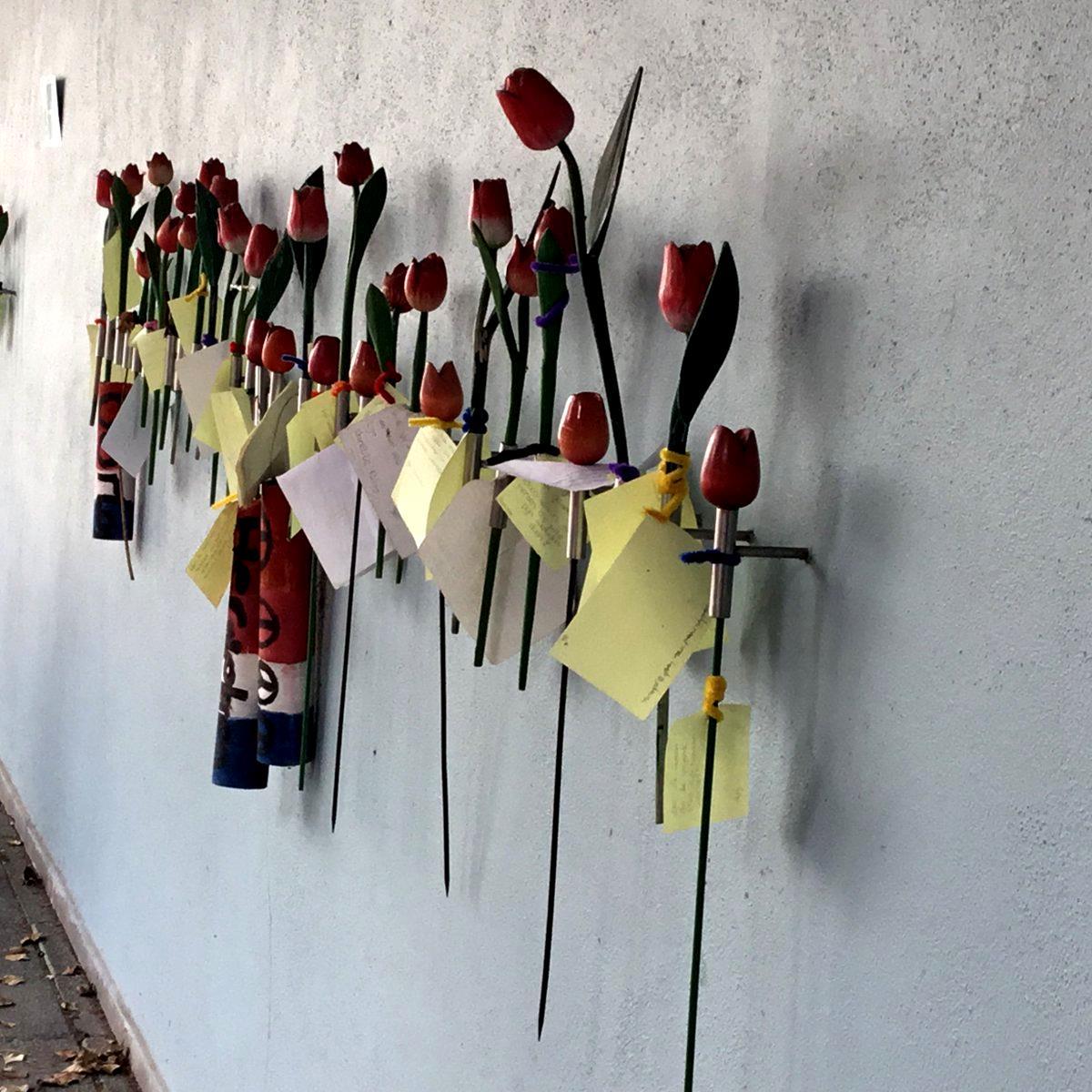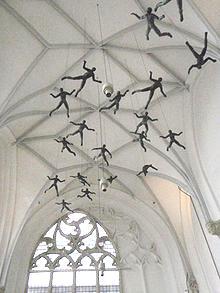
3 minute read
Religious Studies
OPTION CHOICE HUMANITIES RELIGIOUS STUDIES
Gcse Religious STUDIES
Religion, Philosophy and Social Justice through Christianity 1 Christian Beliefs
Trinity / Creation / Incarnation / Last days of Jesus’ life / Salvation / Eschatology / the Problem of Evil
2 Philosophy of Religion
Revelation / Visions / Miracles / Religious Experiences / Prayer / Design Argument / Cosmological Argument / Religious Upbringing
3 Living the Christian Life
Worship / Sacraments / Prayer / Pilgrimage / Celebrations / The future of the Church / The local church / The worldwide Church
4 Equality
Human Rights / Equality / Religious Freedom / Prejudice and Discrimination / Racial Harmony / Racial Discrimination / Social Justice / Wealth and Poverty. * this topic forms the background to our study visit, ‘The Holocaust in The Netherlands’, which usually takes place in September of Year 11.
W H Y r e l i g i o u s s t u d i e s ?
More than ever before, the world we live in is both multi-faith and global. Religion is a major source of inspiration, meaning and controversy in our world, informing politics, law, history, economics, science, art and literature. Understanding people’s religious convictions will help you to understand how they think about controversial and philosophical issues related to: international conflict resolution, peace and the maintenance of justice, good and evil, life and death, the existence of God, religious experience, human rights, prejudice and discrimination, living in community and expressions of cultural identity and spiritual awareness. It is essential that we cultivate our ability to understand and interpret other people’s religious traditions and beliefs if we hope to understand the world we live in. The study of religion is an academic discipline which helps you to learn how to think critically, listen empathetically, speak thoughtfully, and write clearly - all skills that will be of great use no matter what you go on to do in life. In this way studying religion invites us all to think in a more interdisciplinary and integral way about the world and our place in it.


Religion, Peace and Conflict through Islam
1 Muslim Beliefs
Six beliefs / 5 Roots / Nature of Allah / Risalah (Prophets) / Holy books / Malaikah (Angels) / AlQadr (pre-destination) / Akhirah (life after death)
2 Crime and Punishment
Justice / Crime / Good, evil and suffering / Punishment / Aims of punishment / Forgiveness / Treatment of Criminals / The death penalty
3 Living the Muslim Life
Ten Obligatory Acts / Shahadah (declaration of faith) / Salah (prayer) / Sawm (fasting) / Zakah and Khums (purification of wealth) / Hajj (pilgrimage) / Jihad (striving) / Celebrations and Commemorations
4 Peace and Conflict
Peace / Peacemaking / Conflict / Pacifism / Just War Theory / Holy War / Weapons of mass destruction / Issues surrounding conflict


NETHERLANDS STUDY VISIT ‘I think the most memorable place was the war memorial because it really put into perspective how awful the war really was and makes you appreciate what we have.’
Ciara
‘My most memorable part of the visit was visiting the concentration camp and seeing the children’s monument as it really illustrated the extremity of the Nazi regime.’
Meg
CONTACT teacher Miss L Sparrow

EXAM BOARD Edexcel
ASSESSMENT Two written exams
CAREERS Business International Business Marketing and Management The Government Foreign Service Peace Corps Non-profit or NonGovernmental Organisations Counselling Social Work Education Journalism / Publishing Law Medicine Event planning Museums and the Arts Philosophy Theology History Anthropology Sociology Teaching Civil Service Personnel Psychology










